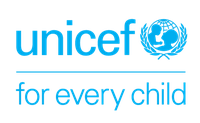Nutrition Officer(Nutrition in Emergencies)
Job Description
The Nutrition Officer (Nutrition in Emergencies) reports to the Chief Nutrition and Child Development for guidance and general supervision. The Nutrition Officer provides professional technical, operational and administrative assistance throughout the programming process for the nutrition programmes and projects, with particular attention to nutrition programming response in emergencies and support for emergency coordination. The incumbent applies theoretical and technical skills in researching, collecting, analyzing, and presenting technical programme information to support the development and formulation of the Nutrition Programme within the Country Programme, while learning organizational rules, regulations and procedures.
Duties and Responsibilities
Summary of key functions/accountabilities:
1. Support to programme development and planning
▪ Research and analyze national political, nutritional, social and economic development
trends. Collect, analyze, verify, and synthesize information to facilitate reliable nutrition
surveillance, emergency response and monitoring of emergency response.
▪ Prepare technical reports and inputs for emergency programme preparation and
documentation, ensuring accuracy, timeliness and relevancy of information.
▪ Facilitate the development and establishment of sectoral programme goals, objectives,
strategies and results-based planning with respect to emergency response, through
analysis of nutrition needs and areas for intervention, as well as submission of
assessments for priority and goal setting.
▪ Provide technical and administrative support throughout all stages of nutrition
programming processes by executing and administering a variety of technical
programme transactions, preparing materials and documentations, and complying with
organizational processes and management systems, to support programme planning,
results based planning (RBM) and monitoring and evaluating of results.
▪ Prepare required documentations and materials to facilitate the emergency nutrition
programme review and approval process.
2. Programme management, monitoring and delivery of results.
▪ Work closely and collaboratively with colleagues and partners to collect, analyze and
share information on implementation issues. Suggest solutions on routine programme
implementation and submit reports to alert appropriate officials and stakeholders for
higher-level intervention and/or decisions. Keep records of reports and assessments for
easy reference and/or to capture and institutionalize lessons learned.
▪ Participate in monitoring and evaluation exercises, programme reviews and annual
sectoral reviews with the government and other counterparts, and prepare minutes and
reports on results for follow up action by higher management and other stakeholders.
▪ Monitor and report on the use of sectoral programme resources (financial, administrative
and other assets), verifying compliance with approved allocation, goals, organizational
rules, regulations, procedures, donor commitments, standards of accountability, and
integrity. Report on issues identified to ensure timely resolution by management and
stakeholders. Follow up on unresolved issues to ensure resolution.
▪ Prepare inputs for sectoral programme and donor reporting.
3. Technical and operational support to programme implementation
▪ Provide support to the Chief Nutrition and Child Development for nutrition sector
coordination, including convening sector meetings, recording and sharing of minutes
and action points, maintaining sector contact lists and 5Ws matrix.
▪ Engage with nutrition sector partners to maintain the nutrition network, and specifically
with UNICEF implementing partners for emergency response, monitoring progress
against targets as per the Programmatic Document (PD) and ensuring compliance with
PD reporting and other requirements through the eTools platform.
▪ Undertake field visits and surveys, and exchange information with partners and
stakeholders to assess progress and provide technical support. Take appropriate action
to resolve issues and/or refer to relevant officials or senior management for resolution.
Report on critical issues, bottlenecks and potential problems for timely action to achieve
results.
• Provide technical and operational support to government counterparts, NGO partners,
UN system partners, and other country office partners and donors on the application and
understanding of UNICEF policies, strategies, processes, and best practices on nutrition
related issues to support programme implementation, operations and delivery of results.
4. Networking and partnership building
• Build and sustain effective close working partnerships with nutrition sector government
counterparts and national stakeholders through active sharing of information and
knowledge to enhance programme implementation and build capacity of stakeholders
to deliver concrete and sustainable results.
• Build and maintain close collaborative working relations with OCHA and other key
sectors / clusters and their leads, including the Food Security and Livelihoods sector /
cluster, the Health sector / cluster and the WASH sector / cluster.
• Draft communication and information materials for CO programme advocacy to promote
awareness, establish partnership/alliances and support fund raising for nutrition
programmes.
▪ Participate in appropriate inter-agency meetings (e.g. Inter-Cluster Coordination
Meetngs ) , nutrition sector meetings, emergency coordination meetings and events on
programming to collaborate with inter-agency partners/colleagues on operational
planning and preparation of emergency nutrition programmes/projects.
▪ Research information on potential donors and prepare resource mobilization materials
and briefs for fund raising and partnership development purposes.
5. Innovation, knowledge management and capacity building
• Identify, capture, synthesize, and share lessons learned, best practices and human-
interest stories for knowledge development and to build the capacity of stakeholders.
• Generate advocacy, visibility and communications materials for sharing through
UNICEF Communications section on social media to raise the profile of UNICEF
interventions and response activities.
• Apply innovative approaches and promote good practices to support the implementation
and delivery of concrete and sustainable programme results.
• Research, benchmark and report on best and cutting-edge practices for development
planning of knowledge products and systems.
• Participate as a resource person in capacity building initiatives to enhance the
competencies of clients and stakeholders.
IV. Impact of Results
The efficiency and efficacy of support provided by the Nutrition Officer to the preparation,
planning and implementation of nutrition programmes/projects contributes to and accelerates
the national development efforts to improve the nutritional status of mothers, infants and children
in the country and this in turn contributes to maintaining and enhancing the credibility and ability
of UNICEF to continue to provide programme services to mothers and children that promotes
greater social equity in the country.
Qualifications and Experience
UNICEF values and competency Required (based on the updated Framework)
UNICEF values and competency Required (based on the updated Framework)
i) Core Values
• Care
• Respect
• Integrity
• Trust
• Accountability
• Sustainability
ii) Core Competencies (For Staff with Supervisory Responsibilities) *
▪ Nurtures, Leads and Manages People (1)
▪ Demonstrates Self Awareness and Ethical Awareness (2)
▪ Works Collaboratively with others (2)
▪ Builds and Maintains Partnerships (2)
▪ Innovates and Embraces Change (2)
▪ Thinks and Acts Strategically (2)
▪ Drive to achieve impactful results (2)
▪ Manages ambiguity and complexity (2)
or
Core Competencies (For Staff without Supervisory Responsibilities) *
▪ Demonstrates Self Awareness and Ethical Awareness (1)
▪ Works Collaboratively with others (1)
▪ Builds and Maintains Partnerships (1)
▪ Innovates and Embraces Change (1)
▪ Thinks and Acts Strategically (1)
▪ Drive to achieve impactful results (1)
▪ Manages ambiguity and complexity (1)
Recruitment Qualifications
Education: A university degree in one of the following fields is
required: nutrition, public health, nutritional epidemiology,
global/international health and nutrition, health/nutrition
research, policy and/or management, health sciences,
nutritional epidemiology, or another health-related science
field.
Experience: A minimum of one year of professional experience in a
developing country in one or more of the following areas is
required: nutrition, public health, nutrition planning and
management, or maternal, infant and child health/nutrition
care.
Experience in health/nutrition programme/project development
in a UN system agency or organization is an asset
Language Requirements: Fluency in English is required. Knowledge of another official
UN language (Arabic, Chinese, French, Russian or Spanish)
or a local language is an asset.
How to Apply

Location: Harare
Company: Unicef
Expiry Date: 2024-10-16 00:00:00

